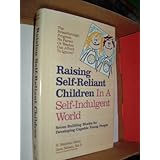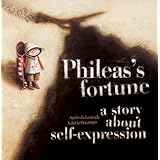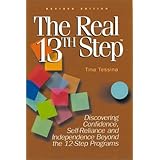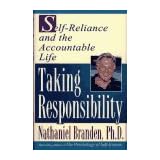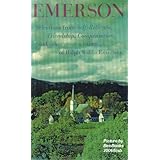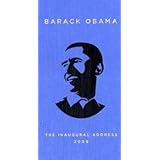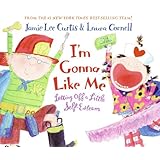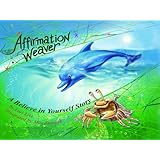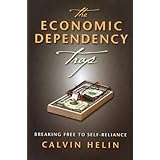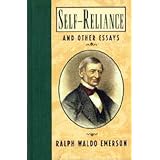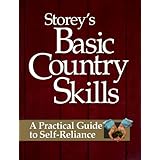
Average Reviews:

(More customer reviews)This collection has two of Ralph Waldo Emerson's essays. The first, "Compensation," is not one of his best or most famous but is one of the most representative. The staunch optimism so essential to his thought was perhaps never shown so clearly or thoroughly elsewhere. Emerson begins by saying he had wanted to write about compensation since he was a boy, and it shows in his enthusiasm. He works himself up almost to a rhapsody, giving example after example in clear, beautiful prose that remarkably never becomes dull and is often near-lyrical. The essay details Emerson's belief that everything balances out, even if we cannot see it, and that good and evil have their own earthly rewards despite appearances. He may not convince cynics, but his argument is certainly compelling, and his critiques of conventional Christianity and other traditions are very intriguing.
The second, "Self-Reliance," is Emerson's most famous essay and is rivaled only by "Concord Hymn" as his most famous work. It is also his masterpiece; one often hears - sometimes disparagingly - that Emerson tried to fit his whole philosophy into each essay, and this comes remarkably close. There is far more depth and subtlety here than the length suggests; one would be very hard-pressed to find another work so densely packed. The words are few, but the implications are enough for a lifetime. "Self" is a seminal masterwork; a founding Transcendentalist text and American Romantic cornerstone, it is central to American thought, culture, and literature. Anyone even remotely interested in any Americana aspect must be intimately familiar with it; aside from the Declaration of Independence and Constitution themselves, perhaps no other document is so vital to the American spirit.
Reading "Self" is perhaps more necessary than ever - not only because it is eternally relevant but also because it is often misrepresented. The term "self-reliance" is now almost entirely political, almost synonymous with libertarianism, and the essay is frequently touted along such lines. However, these things are hardly more than implied here, and though the definition of "liberal" has greatly changed, it is important to remember that Emerson was one of his era's leading liberals. His prime meaning in any case is self-reliance intellectually and in everyday life. He urges us to trust ourselves, to recognize human divinity and avoid imitation. It is a simple message but all-important - and far easier said than done. Emerson explores all its ramifications - philosophical, practical, social, political, economic, etc. - and outlines all its benefits. The case is beyond convincing, but he can do no more than show us; the rest is up to us.
This profoundly individualist message is another reason that reading "Self" is so necessary. Emerson now unfortunately has a reputation for being somewhat impenetrable and/or hopelessly impractical; this is a true shame, because he wrote for the masses. Unlike nearly all philosophers, he does not rely on jargon or polysyllables; he truly wanted to be understood, and all it takes is will. We must open our minds to him, and once we have, they will never be closed again.
Though greatly revered with many and diverse followers, Emerson's intention was not to be loved but to inspire; he wanted all to find individual genius. His work is thus the truest and best kind of self-help manual, and "Self" is its apotheosis. It has inspired millions in the more than century and a half of its existence, including me. I have read thousands and thousands of works, but this is one of the handful that truly changed my life. Emerson's greatness always shines through, but reading him at the right time can make an astonishing difference. He was more popular in life with the young than the old, and I can easily see why. I was lucky to read him at just the right time, and "Self" spoke to me more powerfully than almost anything else ever has. Without hyperbole, I can say that I would not be doing what I am today and would have abandoned my goals and visions without reading "Self" and Thoreau's "Life without Principle" - a somewhat similar essay highly influenced by Emerson - when I did. I was wracked with self-doubt and getting nothing but indifference, bafflement, or hostility from others; these works gave just the kick I needed, and I will never look back. "Self" has the potential to be life-changing as almost nothing else does, and I highly recommend it to all; you can hardly be unaffected and may never be the same. However, I especially recommend it to the young; its importance to them - and Emerson's generally - simply cannot be overemphasized.
Emerson is a signature American stylist, and "Self" is near his height. His writing is always memorable and often highly lyrical - about as close to poetry as prose can be. However, his essays were almost always painstakingly composed from lectures and journals, and the effect was sometimes choppy. An Emerson-loving professor of mine once joked that no one can find the topic sentence in an Emerson paragraph, and his transitions also frequently leave much to be desired. However, "Self" is near-seamless, a true masterpiece of style that flows smoothly and often waxes beautiful. This is all the more remarkable in that it was assembled even more than usual from disparate sources; entries that ended up here came as far as eight years apart, but the whole is admirably harmonious.
"Self" is a preeminent example of how Emerson delights in paradox. Anyone who reads him closely sees that he is as complex as he is simple. Thus, despite - or perhaps even because of - apparent straight-forwardness, few texts are more ripe for deconstruction. "Self" fans after all love a text that tells us not to love texts, are inspired by a man who tells us not to be inspired by men, and are convinced by a text and man both of which tell us not to be convinced by either. But this is only the beginning. "Self" works because it tells us exactly what we want to hear and, in striking contrast to innumerable self-help books, does so in an intellectually and even aesthetically respectable way. This is fine for me and (hopefully) you but could of course be taken to heart by Hitler as easily as Gandhi. The thoroughly optimistic, mild-mannered, and physically frail Emerson may not have foreseen his revolutionary text being put to nefarious use and probably would have been unable to believe in even the possibility. However, the danger, if we choose to call it so, is very real. "Self" could easily have had the same effect that Nietzsche had on Nazis, and that it has not been taken up by anarchists, radical terrorists, and the like is perhaps mere luck. One at least wonders how it avoided preceding The Catcher in the Rye as the work synonymous with unsavory people. That said, it is likely unfair to Emerson to say he did not anticipate this; he after all takes his views to the logical conclusion. He surely saw it, and it may have given pause, but he persevered because he was faithful to his intuition just as he urges us to be to ours. He truly believed in self-reliance and was ready to stand by it no matter what befell - nay, thought it his only choice. His optimism must have told him that the doctrine would not be abused, and he has been right - so far. Only time will tell if this continues to hold, but "Self" remains essential for all.
These essays are essential for anyone interested in Emerson, and "Self" is well worth buying alone, but the fact that they are in many collections makes it very hard to justify a standalone.
Click Here to see more reviews about:
Compensation and Self-Reliance
Click here for more information about Compensation and Self-Reliance



